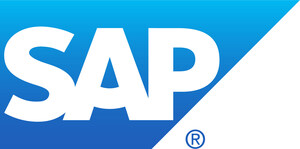WALLDORF, Germany, Nov. 9 2016 /PRNewswire/ -- SAP NEWSBYTE -- SAP SE (NYSE: SAP) today announced a new Data Science Curriculum that combines business and industry-specific expertise with technical hands-on know-how to apply this in SAP® software environment. It is planned to complement this in 2017 with certification. The curriculum aims to equip data scientists with SAP solutions and technology knowledge. It uses the SAP HANA® platform, SAP BusinessObjects™ Predictive Analytics software and SAP Data Services software and visualization tools to bridge the digital divide between business and IT. The announcement was made at SAP TechEd Barcelona.
Every day 2.5 quintillion bytes of data are created1. This means that 90 percent of today's existing data was created over the last two years. In light of this immense amount of data, businesses need data scientists who can utilize techniques and theories from the fields of mathematics, statistics, information science, and computer science to extract knowledge from large volumes of structured and unstructured data.
"The ability to derive actionable insight from data is an essential element in making businesses successful in today's digital world," said Bernd Welz, executive vice president, Scale, Enablement and Transformation, SAP. "Our Data Science Curriculum provides learners with the tools they need to infuse analytics into their problem-solving process as they work to make critical business decisions."
The new curriculum addresses two of the main skill sets needed by data scientists: understanding the lifecycle of a data science project and understanding the appropriate tools and capabilities to support each part of the data science project lifecycle.
The new offering aids participants in being the most innovative in the field. In particular, these data scientists will be able to analyze large, complex data sets using tools in the SAP BusinessObjects Cloud solution and produce visually attractive reports using SAP Fiori® user experience.
Aimed at application consultants, data scientists, business and data analysts, developers and researchers as well as graduate students, the program provides participants with unique learning journeys. These journeys provide learners with guidance and road maps to seek out their most effective learning path to becoming a data scientist focused on SAP software. Delivered digitally through the openSAP platform and SAP Learning Hub, as well as on-site from training centers sponsored by SAP, the program addresses the main skill areas of data scientists through lectures, system demonstrations, case study analysis and practice.
The Data Science Curriculum supports the effort to increase the number of data scientists skilled in working with massive data from Internet of Things (IoT) applications. Ubiquitous sensors are generating Big Data across all aspects of digital life, creating opportunities for companies to gain real-time analytic insights using IoT applications.
The new Data Science Curriculum will be rolled out globally to the SAP University Alliances network, which includes over 2,900 educational institutions in 105 countries. The rollout will include the growing number of labs sponsored by the SAP Next-Gen Consulting program that are opening at SAP locations and universities globally. The aim of these SAP Next-Gen Lab spaces is to enable students and start-ups to use analytic and IoT software from SAP together with 3D printers and other cutting-edge technologies to work IoT concepts into prototype applications. The endeavor is to give space and resources for innovation projects that connect academia, start-ups and industry.
Following the launch of the Data Science Curriculum, SAP plans to develop and launch similar programs for other roles.
For more information, visit the SAP News Center. Follow SAP on Twitter at @sapnews.
Media Contact:
Martin Gwisdalla, SAP, +49 (6227) 7-67275, [email protected], CET
Erin Albright, FleishmanHillard, +1 (212) 453-2344, [email protected], ET
Any statements contained in this document that are not historical facts are forward-looking statements as defined in the U.S. Private Securities Litigation Reform Act of 1995. Words such as "anticipate," "believe," "estimate," "expect," "forecast," "intend," "may," "plan," "project," "predict," "should" and "will" and similar expressions as they relate to SAP are intended to identify such forward-looking statements. SAP undertakes no obligation to publicly update or revise any forward-looking statements. All forward-looking statements are subject to various risks and uncertainties that could cause actual results to differ materially from expectations. The factors that could affect SAP's future financial results are discussed more fully in SAP's filings with the U.S. Securities and Exchange Commission ("SEC"), including SAP's most recent Annual Report on Form 20-F filed with the SEC. Readers are cautioned not to place undue reliance on these forward-looking statements, which speak only as of their dates.
Logo - http://photos.prnewswire.com/prnh/20110126/AQ34470LOGO
SOURCE SAP SE
Related Links
WANT YOUR COMPANY'S NEWS FEATURED ON PRNEWSWIRE.COM?
Newsrooms &
Influencers
Digital Media
Outlets
Journalists
Opted In




Share this article